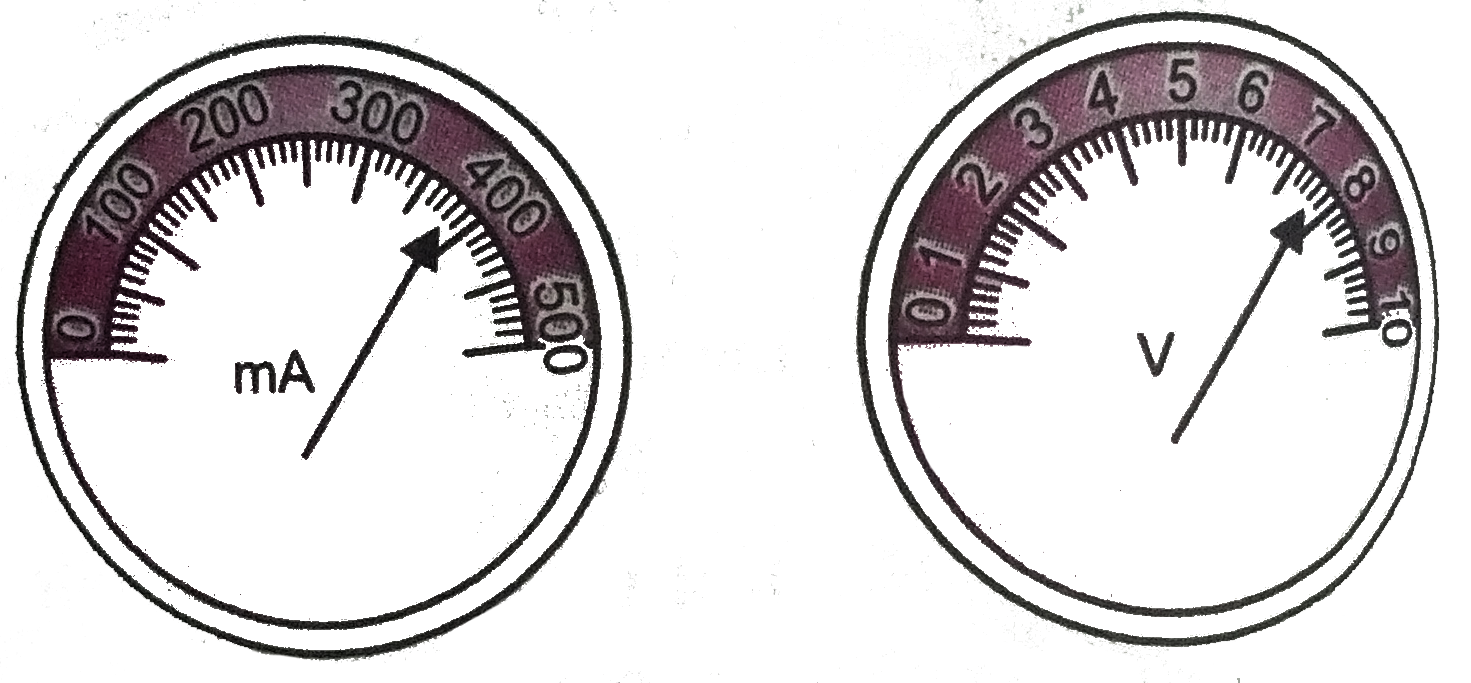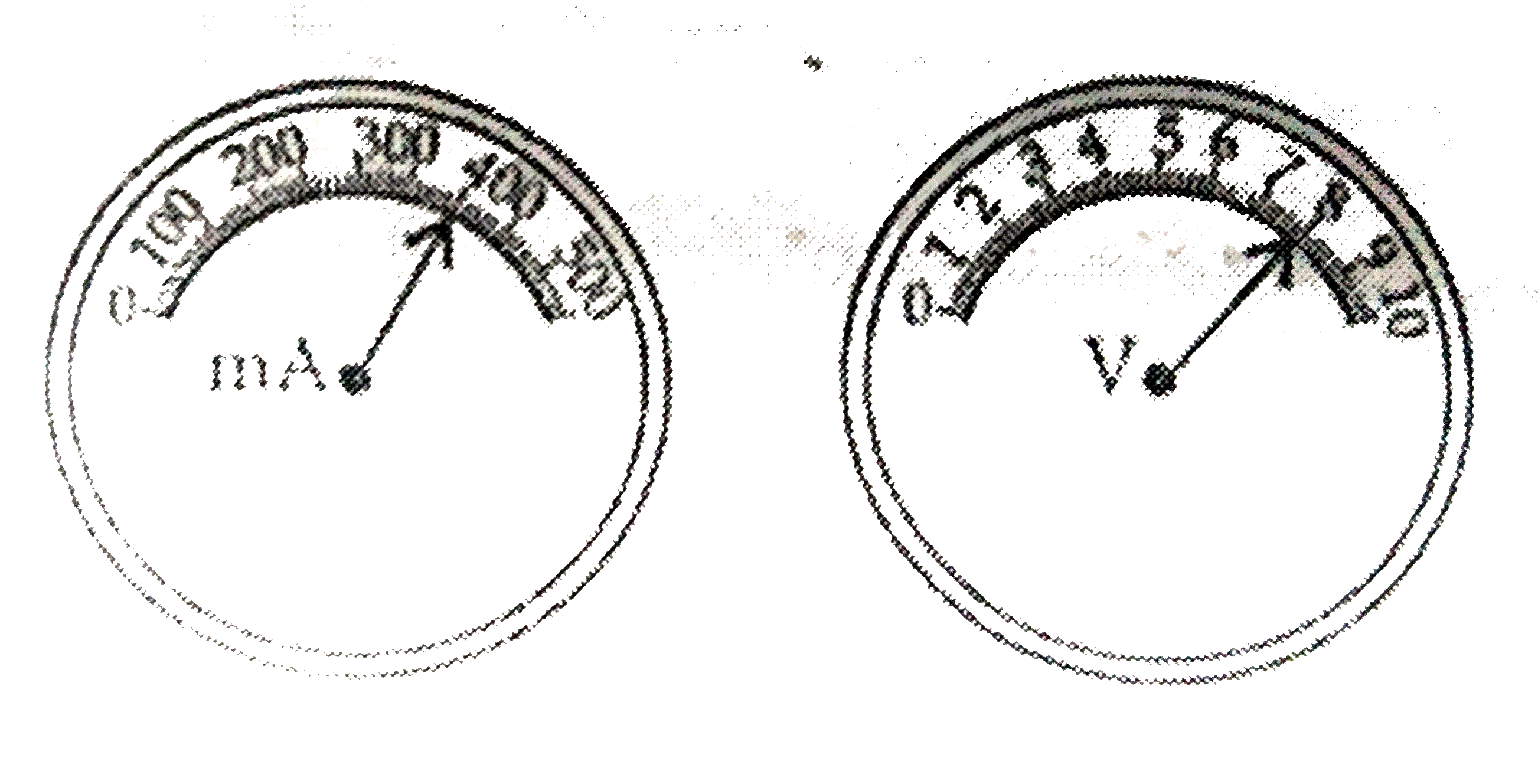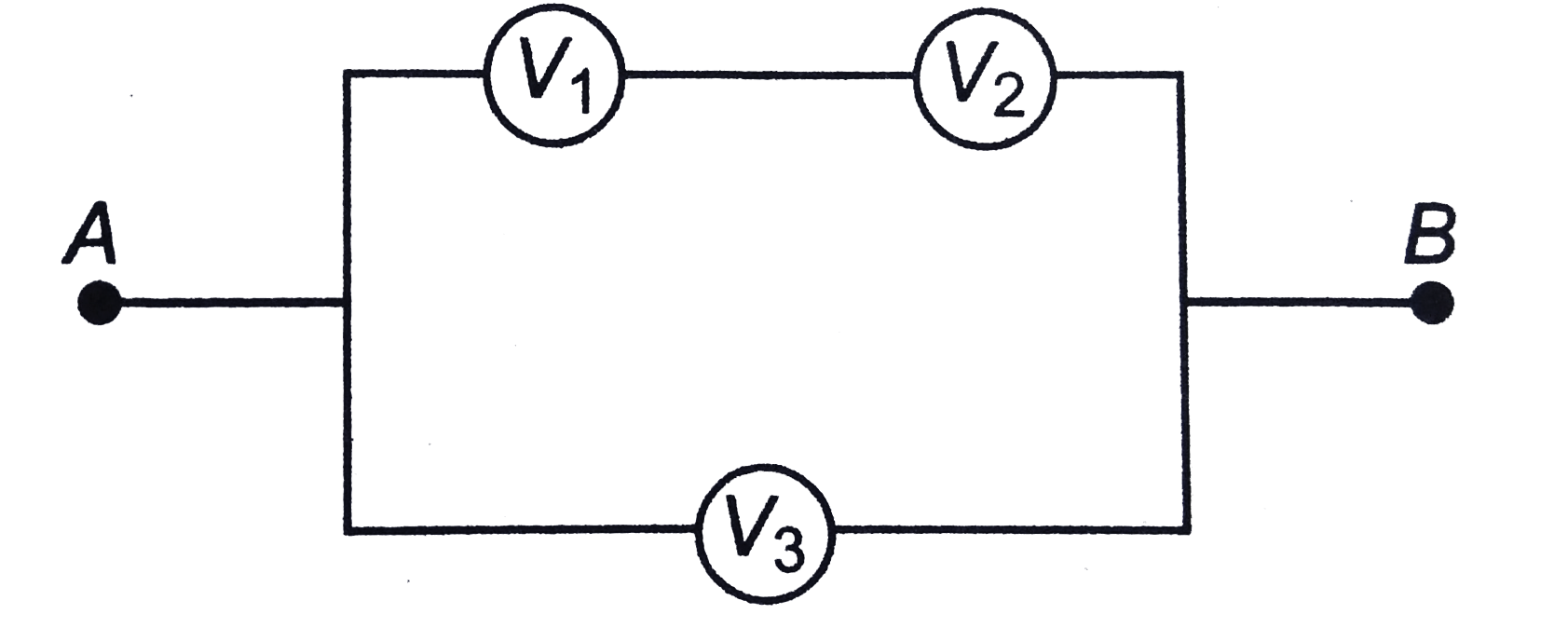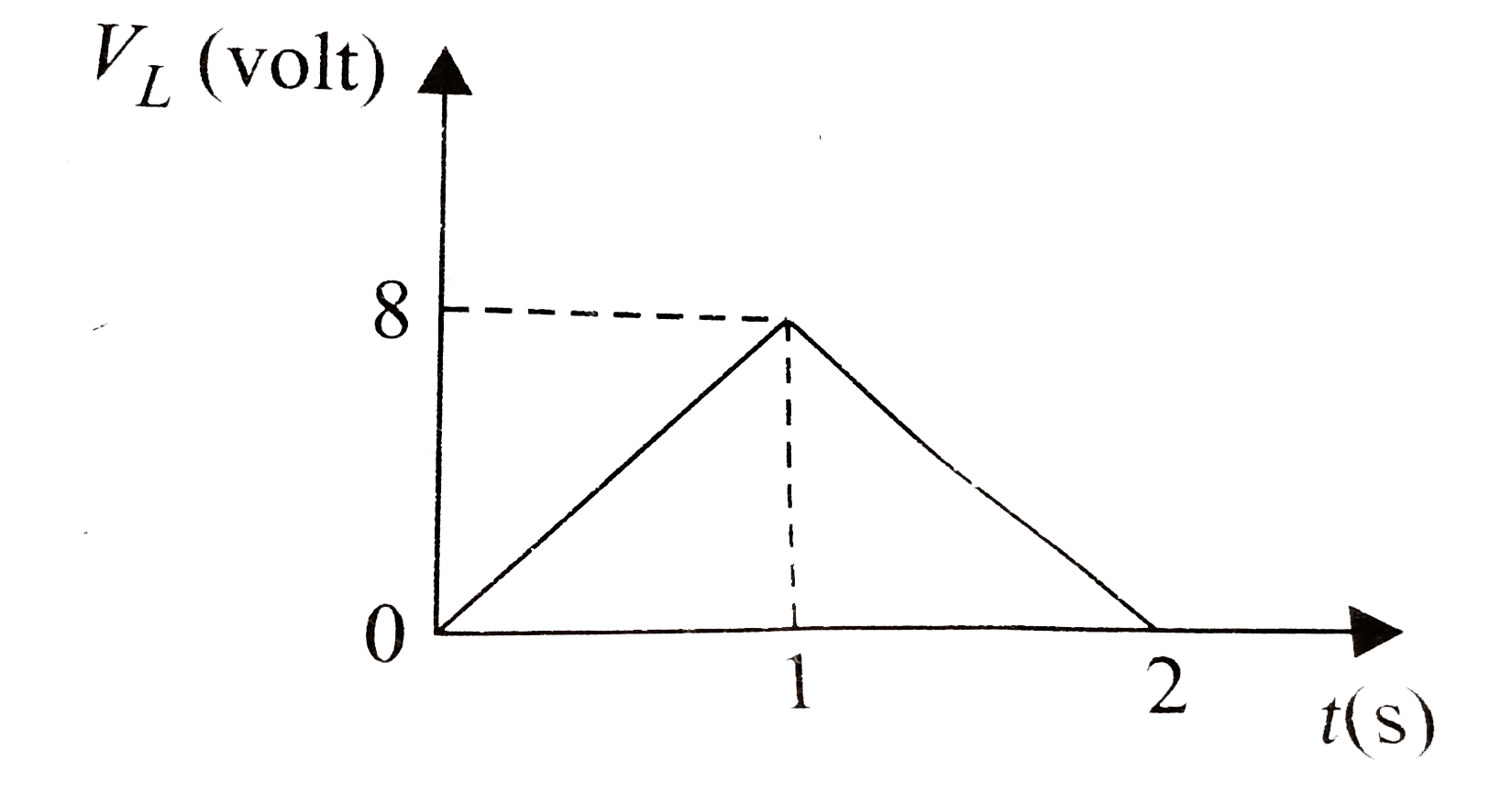The current in a conductor and the potential difference across its ends are measured by an ammeter and a voltmeter.The meters draw negligible current.The ammeter is accurate but the vlotmeter has a zero error(that is ,it does not read zero when no potential difference is applied).Calculate the zero error if the readings for two different conditions are 1.75A, 14.4Vand 2.75a, 22.4V.
The correct Answer is:D
Let the voltmeter reading when the voltmeter has zero error be V.
l1Rl2R=V1V2or1.752.75=14.4−V22.4−Vor711=14.4−V22.4−V
or 7×(22.4−V)=11(14.4−V)
or 156.8−7V=158.4−11VorV=0.4V.
Topper's Solved these Questions
- MISCELLANEOUS VOLUME 3BOOK - CENGAGE PHYSICSCHAPTER - MISCELLANEOUS VOLUME 3EXERCISE - True and False
3 Videos
- MISCELLANEOUS VOLUME 3BOOK - CENGAGE PHYSICSCHAPTER - MISCELLANEOUS VOLUME 3EXERCISE - Assertion and Reason
8 Videos
- MECHANICAL PROPERTIES OF SOLIDSBOOK - CENGAGE PHYSICSCHAPTER - MECHANICAL PROPERTIES OF SOLIDSEXERCISE - Question Bank
4 Videos
- MISCELLANEOUS VOLUME 5BOOK - CENGAGE PHYSICSCHAPTER - MISCELLANEOUS VOLUME 5EXERCISE - Integer
12 Videos
Similar Questions
The current flowing through a conductor and the potential difference across its two ends are as per reading of the ammeter and the voltmeter shown in (Fig. 3.50). Find the resistance of the conductor.
 .
.
View SolutionThe reading of current flowing through a conductor and the potential difference its two end are shown in the ammeter and volmeter given below. What will be the value of resistance in it?

View Solution
Knowledge Check
The potential difference across a 4 H inductor vary with time is as shown. The current is Zero at t=0, Then the current at time t=2s
 A1AB2AC3AD4A
A1AB2AC3AD4AThree voltmeters all having different resistance, are joined as shown. When some potential difference is applied acros A and B, their readings are V1,V2 and V3. Then
 AV1=V2BV1≠V2CV1+V2=V3DV1+V2>V3
AV1=V2BV1≠V2CV1+V2=V3DV1+V2>V3How much current is flowing through a 1kΩ resistor when a potential difference of 2 V is applied across its end ?
A2μAB2mAC2AD1A
How much current flows through a 2kΩ resistor when a potential difference of 4V is applied across its ends?
View SolutionHow much current flows through a 2 kΩ resistor when a potential difference of 4 V is applied across its ends ?
View SolutionHow much current is flowing throught a 1kΩ rsistor when a potential difference of 2V is applied across its end ?
View SolutionCalculate the heat generated in joule in a coil when potential difference of 30 volts is applied across it. The current of 0.8 A is passed for 4 minutes.
View SolutionThe potential difference across a 2-H inductor as a function of time is shown in Fig. At time t = 0, current is zero.

Current at t = 1 s is
View Solution
